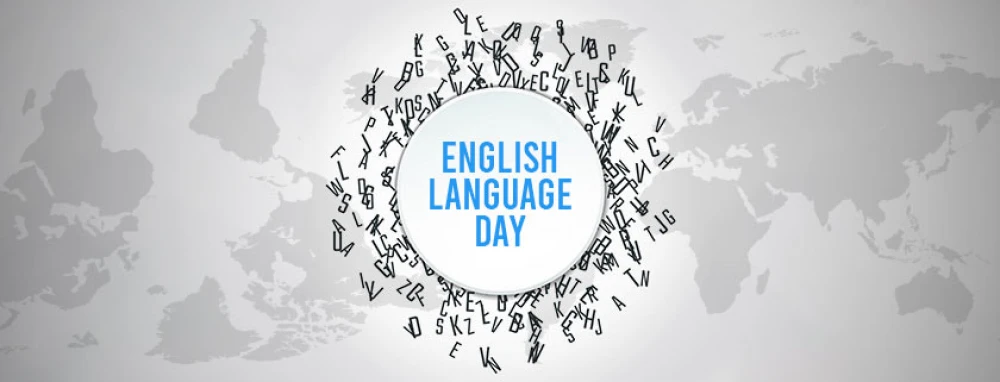
23/04/2024
1673
An International English Language Day at the United Nations: A Nexus of Global Dialogue and Cultural Harmony
In the dynamic tapestry of international relations, language serves as the vital thread stitching together diverse cultures and fostering mutual understanding. Amidst this linguistic mosaic, the English Language Day at the United Nations emerges as a beacon of intellectual exchange, celebrating the multifaceted role of English as a lingua franca of diplomacy, science, and culture.
An English Language Day, observed annually on April 23rd, pays homage to the legacy of William Shakespeare, the linguistic prowess transcended time and borders, enriching the global lexicon. It also coincides with the World Book and Copyright Day, emphasizing the power of language to disseminate knowledge and ignite intellectual curiosity. Along with Arabic, Chinese, French, Russian, and Spanish, the United Nations has created this holiday to promote cultural diversity and multilingualism. A wide range of activities like book reading, film viewing, and quizzes are hosted by different organizations around the world to celebrate this day. Whether you’re a student or adult, this day is meant to educate people of all ages about the beauty, complexity, and universality of the language.
At the United Nations, where diplomacy unfolds on the world stage, English plays a pivotal role as one of the organization's six official languages. Its ubiquity facilitates communication among delegates from diverse linguistic backgrounds, ensuring inclusivity and effectiveness in multilateral negotiations.
However, English Language Day is not merely a celebration of linguistic dominance but a tribute to the cultural diversity it embraces. Through language, we gain access to the rich tapestry of human experience, each word a brushstroke painting a vivid portrait of history, literature, and scientific inquiry.
For scientists, English serves as the lingua franca of academia, enabling collaboration and knowledge exchange across borders. From groundbreaking research papers to international conferences, the English language transcends geographical barriers, propelling scientific innovation forward.
n English Language Day, scientists worldwide converge to share their latest discoveries, forging new partnerships and pushing the boundaries of human knowledge. It is a day of intellectual revelry, where ideas collide and spark new avenues of exploration. In this era of globalization, English Language Day assumes even greater significance as a catalyst for cross-cultural understanding and solidarity. Through language, we bridge the divides that separate us, fostering empathy and cooperation in pursuit of shared goals.
As we commemorate English Language Day at the United Nations, let us reflect on the transformative power of language to unite, inspire, and enlighten. Let us celebrate the diversity of voices that enrich our global discourse and reaffirm our commitment to building a more inclusive and harmonious world, one word at a time. English Language Day at the United Nations is not just a commemoration; it is a call to action. It beckons us to recognize the immense responsibility that comes with linguistic privilege and to use it as a force for positive change.
In the realm of diplomacy, English serves as the bridge between nations, facilitating dialogue and diplomacy. It empowers diplomats to negotiate treaties, draft resolutions, and address global challenges with clarity and precision. Moreover, it empowers individuals to advocate for human rights, social justice, and environmental sustainability on a global scale.
Beyond the hallowed halls of diplomacy, English Language Day sparks a cultural renaissance, showcasing the richness and diversity of English literature, music, and film. From the sonnets of Shakespeare to the lyrics of Bob Dylan, English transcends borders, captivating hearts and minds with its universal appeal.
For educators, English Language Day is an opportunity to promote linguistic diversity and foster multilingualism. By celebrating the English language alongside other languages, educators can cultivate a global perspective among students, encouraging them to embrace linguistic diversity as a source of strength and enrichment.
In the digital age, English Language Day takes on new dimensions, as technology enables instant communication and collaboration across continents. Social media platforms, online forums, and digital libraries democratize access to information, empowering individuals to participate in global conversations and shape the future of our interconnected world. As we navigate the complexities of the 21st century, English Language Day reminds us of the enduring power of language to shape our shared destiny. It challenges us to transcend linguistic barriers and build bridges of understanding that unite rather than divide.
In conclusion, English Language Day at the United Nations is a celebration of language, culture, and humanity's collective aspirations. It is a testament to the enduring legacy of William Shakespeare and a tribute to the boundless potential of linguistic diversity. As we commemorate this auspicious occasion, let us reaffirm our commitment to harnessing the power of language for the greater good and building a more inclusive and harmonious world for future generations.
Shanazar OWLIYAGULYYEV,
the 1st year student of the Faculty of International Economic Relations of the
Institute of International Relations of the
Ministry of Foreign Affairs of Turkmenistan.
Latest News

12/02/2026
FEBRUARY 13 IS WORLD RADIO DAY
10/02/2026
FEBRUARY 10 – WORLD PULSES DAY!
03/01/2026
WORLD BRAILLE DAY